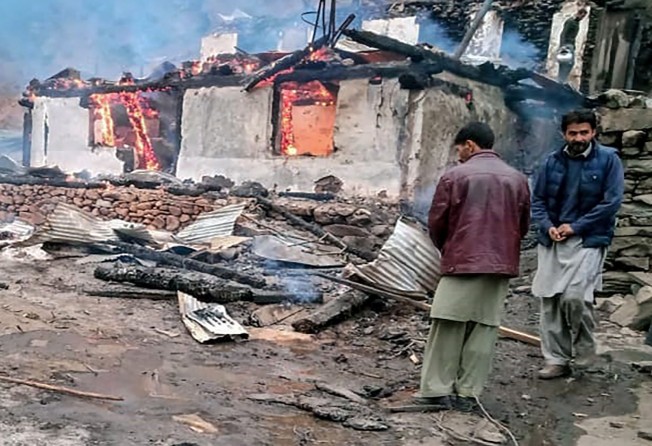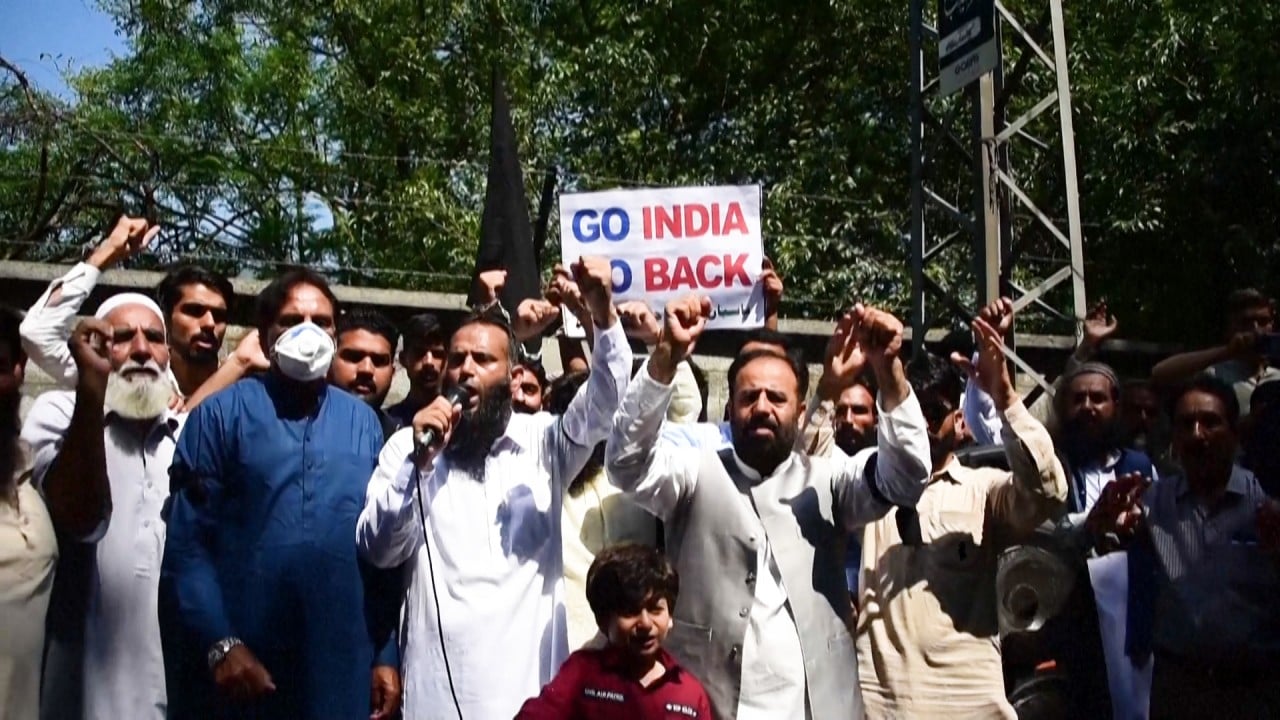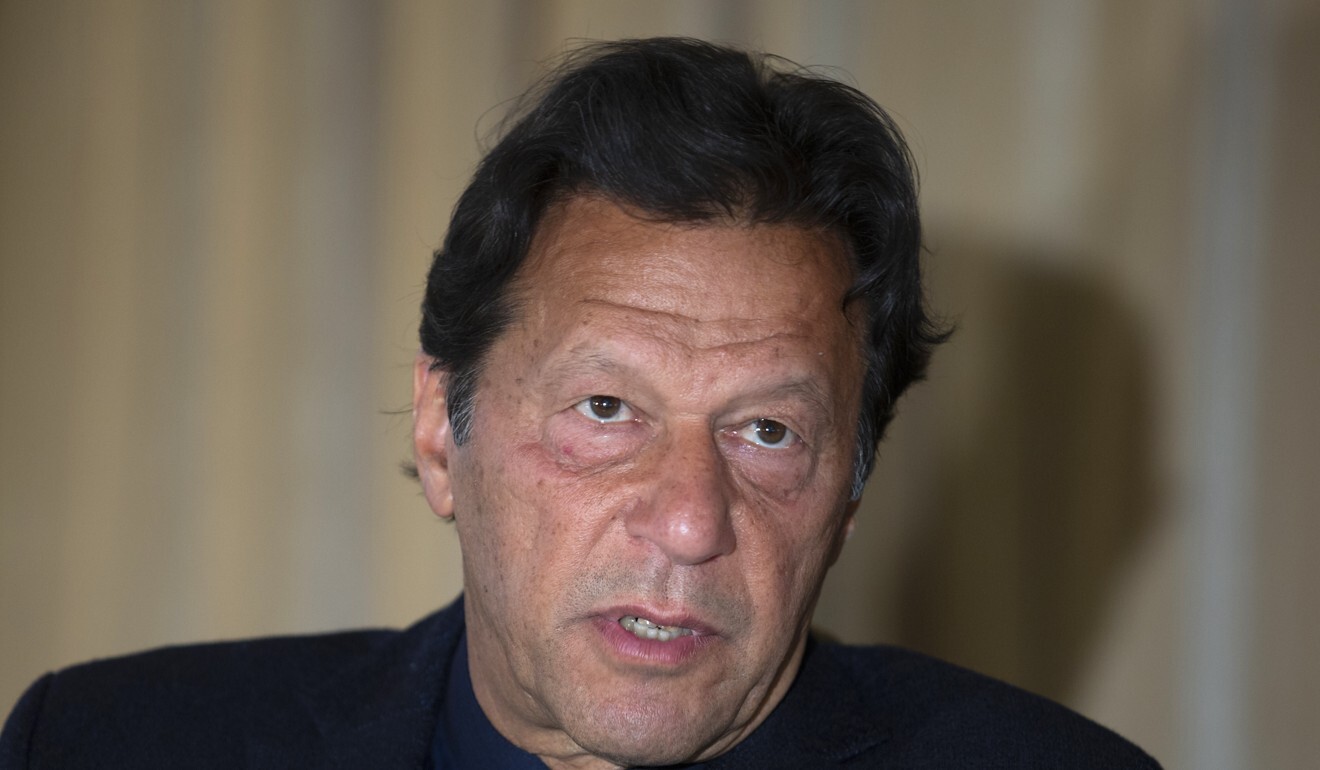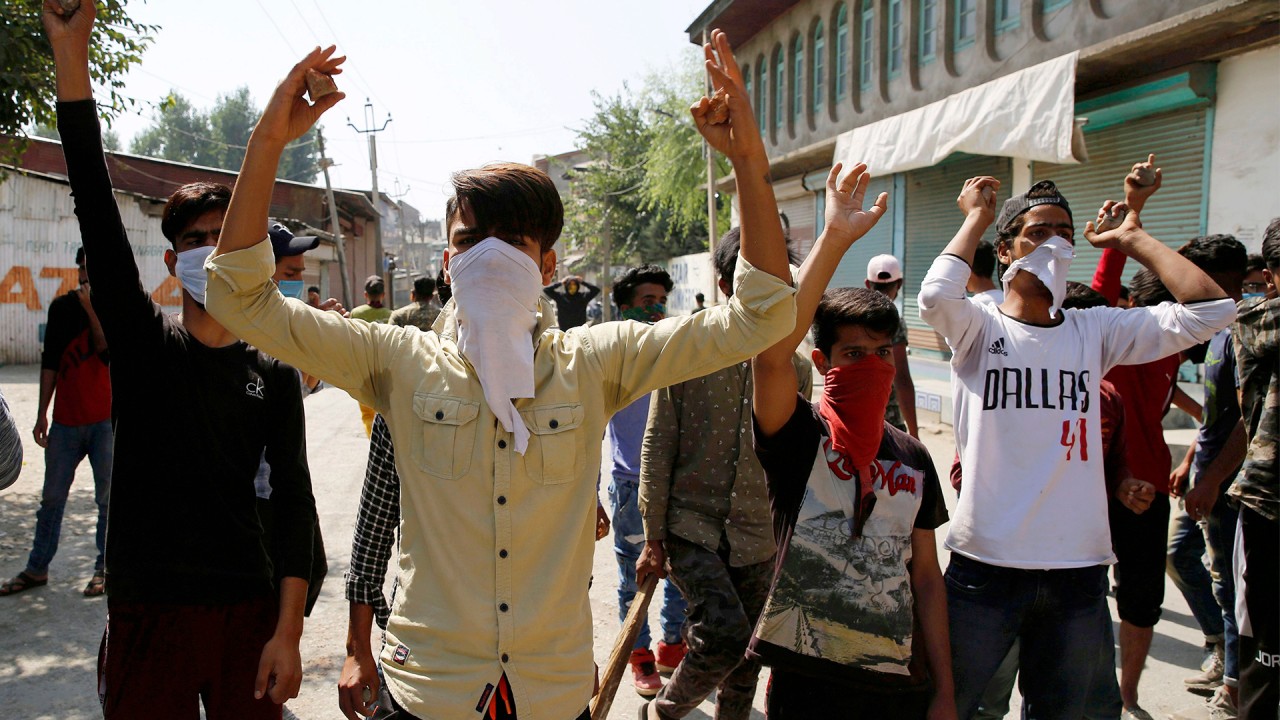
02:31
Biden’s victory instills fresh hope in Kashmir over revocation of special status

Practically two years to the day after Indian and Pakistan warplanes clashed in the skies over Kashmir, a ceasefire suddenly reinstated on Thursday is holding along the Line of Control (LoC) which divides the hotly disputed state.
In the absence of any explanation from either Islamabad or New Delhi, mystery surrounds the circumstances in which the South Asian foes agreed to call a halt to the thousands of skirmishes that have taken place along the LoC since their air forces clashed in February 2019.
Coming so soon after the February 11 agreement between India and China to end their military stand-off in the Ladakh region, the timing of the ceasefire reinstatement with Pakistan suggests the moves may have been choreographed with China, analysts said.
The reinstatement of the LoC ceasefire came on the same day China and India agreed to establish a hotline between their foreign ministers so as to ensure “timely communication and exchange of views”, according to China’s Ministry of Foreign Affairs.
The analysts also believe the newly installed administration of US President Joe Biden was in the loop, if not actively involved, because it wants Pakistan fully invested in persuading its Taliban allies to agree to a political settlement for Afghanistan – as did his predecessor Donald Trump.

02:31
Biden’s victory instills fresh hope in Kashmir over revocation of special status
“The surprise would be if the four capitals did not discuss all these elements – especially since this conversation, as we know from Trump’s super-public statements, has been ongoing for a while, in one way or the other,” said Indian security analyst Praveen Swami.
Either way, the decision to reinstate the LoC ceasefire was taken by Islamabad and New Delhi in light of the broader geopolitics of South Asia, analysts said.
Despite some recent India-China troop disengagements along their disputed border, New Delhi continued to worry about its border tensions with Beijing – a more powerful rival than Islamabad, they said.
“From India’s perspective, it may make sense to lower temperatures with Islamabad to free up more policy space to focus on the China issue,” said Michael Kugelman, senior South Asia associate at the Wilson Centre, a Washington-based think tank.
“Does this mean the ceasefire was driven purely by regional geopolitical developments, beyond strictly bilateral concerns? Not necessarily. But the state of play in the broader region does give India and Pakistan additional incentives to proceed down an off ramp that will produce – at least for now – a bit less regional instability,” he said.
Prime Minister Narendra Modi’s administration is yet to comment on the statement jointly issued by the Indian and Pakistani army generals in charge of operations along their shared borders – itself the first such collaborative effort in several years.

Anniversary of loss of special status for Indian-held Kashmir sparks protests on Pakistan side
In it, Pakistan and India committed to addressing each other’s “core issues and concerns which have a propensity to disturb the peace and lead to violence”.
In a tweet posted on Saturday, Pakistan’s Prime Minister Imran Khan welcomed the restoration of the LoC ceasefire originally agreed in November 2003, and spelt out Islamabad’s core issue.
“The onus of creating an enabling environment for further progress rests with India,” Khan said. “India must take necessary steps to meet the long-standing demand and right of the Kashmiri people to self determination.”
India’s core issue is the cross-LoC jihad waged against its security forces by Pakistani militants covertly backed by Islamabad.
The dogfight two years ago was sparked by an Indian retaliatory air strike against a training camp operated by the Jaish-e-Mohammed terrorist group near the northern Pakistani town of Balakot.
New Delhi held the group responsible for a suicide bombing attack on a paramilitary convoy in Kashmir which killed 40 Indian soldiers.
Since then, cross-LoC firing by Indian and Pakistani troops had been at its most intense since the 2003 ceasefire agreement.
Analysts in India, Pakistan and the United States are in consensus that the restoration of the ceasefire is the result of months of secretly conducted diplomacy involving Modi’s national security adviser Ajit Doval.
His Pakistani counterpart Moeed Yusuf has denied taking part, so it remains unclear who represented Pakistan. The decision to participate would undoubtedly have come from its top military leadership, which exercises a veto over foreign and defence policymaking.
The first indication of a thaw between the two countries came in a February 2 speech by Pakistan’s army chief of staff General Qamar Javed Bajwa, by far the country’s most powerful decision maker. “It is time to extend a hand of peace in all directions,” he told an audience of Pakistan Air Force cadets.

“Pakistan is a peace-loving country that has rendered great sacrifices for regional and global peace. We stand firmly committed to the ideal of mutual respect and peaceful coexistence” Bajwa said.
His statement followed 18 months of non-communication between Islamabad and New Delhi, following India’s surprise August 2019 decision to rescind the semi-autonomous status of the half of Kashmir that it administers.
The ceasefire restoration deal “is a huge development in South Asia. India-Pakistan relations have been really bad, especially since August 2019. In addition, 2020 was a bloody year on the LoC. Both armies and civilians along the border suffered substantial losses, said Asfandyar Mir, a postdoctoral fellow at the Centre for International Security and Cooperation at Stanford University in California.
Pakistan has been under pressure for some time and has wanted the violence along the LoC to go down for a while, he said.

01:46
Civilians clash with government forces in Indian Kashmir after four killed in armed encounter
India, on the other hand, has over the past few years sustained a high level of violence on the LoC “as a key tool of its broader coercive strategy of raising costs” to change Pakistan’s support of various India-specific jihadist terrorist groups, separatism in Kashmir, and the claim on Kashmir, he said.
“The real question is why did India agree to this now? Given the infiltration levels along the LoC are down and Pakistan has taken some action against one major jihadist group, it is possible India believes it has obtained some nominal goals so it is time to take an off-ramp,” Mir said.
Last year, Pakistani courts convicted and jailed leaders of Jamaatud Dawah on charges of financing terrorism. The group was responsible for the November 2008 terrorist attacks on Mumbai in which 166 people were killed.
Nonetheless, last week the Paris-based Financial Action Task Force retained Pakistan on its “grey list” of countries deemed by the G7-backed organisation to have taken insufficient action to prevent terrorism financing and money laundering.
Echoing Kugelman of the Wilson Centre, Mir said it was more likely that “India’s continued engagements with China led Indian policymakers to believe that they need to lower the level of hostility with Pakistan.”
Many analysts believe the restoration of the LoC ceasefire is the first step of a broader re-engagement between India and Pakistan that is likely to follow a scheduled set of tentative confidence-building measures, such as the posting of ambassadors after a two-year hiatus.
“It is likely to be received positively by the new Biden administration and China,” Mir said.
“At the same time, there are major risks due to which the ceasefire can collapse soon. So let’s see if it can last,” he cautioned.